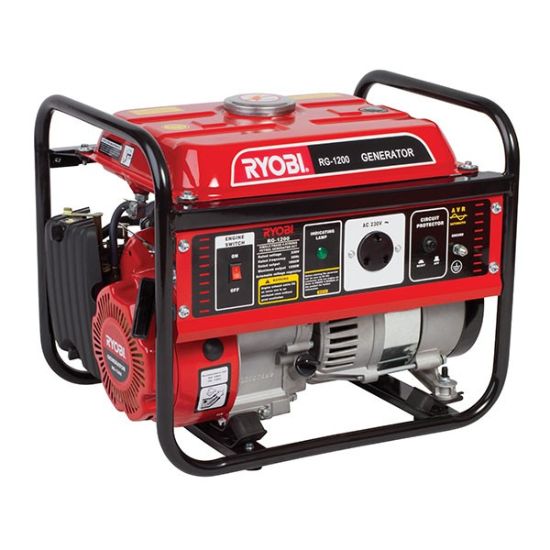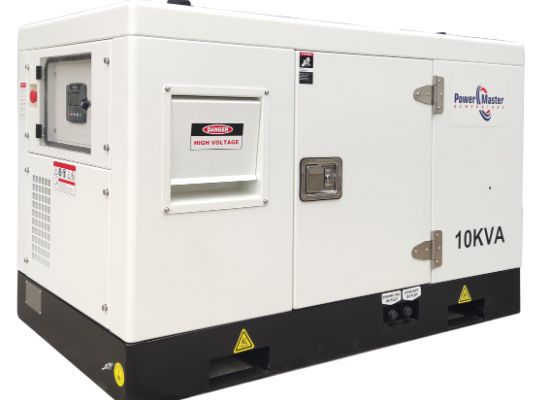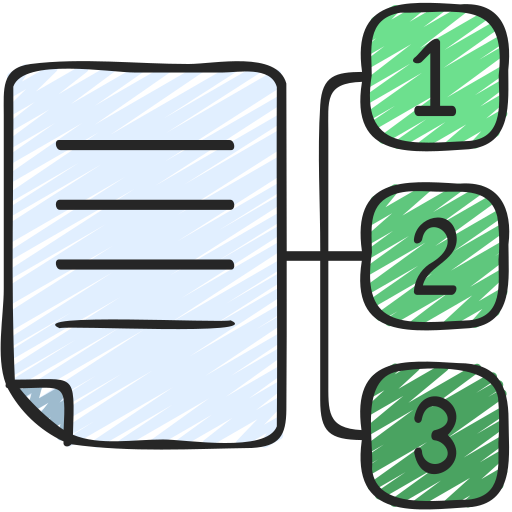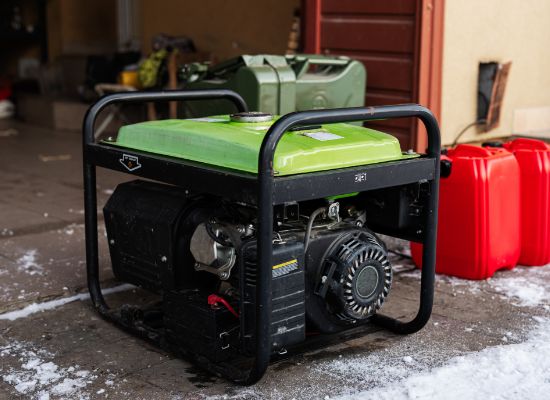Generator Supply and Services Alberton
What type of generator do our partners supply, install, maintain and repair?
Our partners can specialize in all types of generators for homes and small to large businesses. They can supply, install, maintain and repair both portable and Stationary generators for any application. Let’s briefly talk about the differences and uses of both portable and static generators.
Portable Generators
Portable generators as the name suggest are easily portable and are used to provide power offsite. Additionally, they are often used to power homes during load shedding. Here are some facts about portable generators.
- Normally used to power only essentials
- Some models have electrical starters but most are pull-start
- Due to exhaust emissions, it should only be placed outside.
- Can easily be moved or transported
- Can be integrated into DB board or provide power via extension cable
- Most models are petrol powered and thus heavier on fuel than their stationary diesel equivalents.


Static or standby Generators
Are installed in a fixed location outside a home or business to provide power whenever there is a grid failure. Here are some facts about Static Generators.
- Mostly diesel-powered but some petrol units are available.
- Fixed units have an electric start and can start automatically when the grid fails
- Will be installed in a fixed location and tied into the electrical system
- Diesel units are far more fuel efficient than portable petrol ones
- Make less noise than open frame portable units
- Fixed generator can be set up to power your whole premises or only selected essentials
Don’t know what type of generator to get for your needs? Talk to one of our trusted partners for advice on what generator is right for you.
Don’t know what type of generator to get for your needs? Talk to one of our trusted partners for advice on what generator is right for you.

What are some of the Advantages of having a Backup Generator?
Not losing power during a grid failure due to load shedding, weather or any other reason has many benefits. Here are just some of them:
- Production losses due to load shedding can be minimized
- Essential medical equipment will not be without power if the grid is down
- Will be able to run fridges and refrigerators ensuring that food and other perishable items do not spoil.
- Will be able to provide a comfortable working or home environment by climatizing your home.
- Improved safety with lighting being able to be maintained
- Improved security with power being maintained to security and camera systems being maintained.
There are numerous other advantages of having power when the grid fails. If you don’t want to be caught out without power contact Solar Energy Installers Today. We will connect you with a leading Generator expert in for an obligation-free quote for what ever generator services you require.

Generator Installations, Explained Step by Step
Not losing power during a grid failure due to load shedding, weather or any other reason has many benefits. Here are just some of them:
Decide where to install the generator – Select a place that is:
- Well Drained with no water build up during harsh weather.
- Has a sufficient working area around the generator to service and repair the generator
- Is further away than 2 metres from the property limit
- Not close to a window so harmful gasses do not enter your building
Establish a solid base – Your generator should be installed on a firm base by casting a cement slab or by building a small retaining wall and filling it with a gravel base.
Generator Installation – Install the generator firmly and securely on the base.
Connect the generator to the electrical system and external fuel supply – Connect the generator to the electrical system of the premises and set up automatic or manual changeover. If an external fuel source will be used it is now time to connect this as well.
Testing and Outage Simulation – After final inspection, our partners will simulate a grid outage to ensure that generator starts up automatically and operates correctly.
COC certificate – Once the generator is installed an electrician will perform an inspection of the installation and issue an electrical COC certificate.
It usually takes between 2 and 4 days to install a generator depending on the size, location and complexity of the installation.

Importance of maintaining and servicing your Generator
An essential but frequently overlooked part of using a generator is maintaining and servicing it. Correct and prompt servicing and maintenance of a generator will result in:
- The installation being as safe as possible with the least amount of risk of electrocution.
- That the generator will function correctly and reliably during a power outage.
- Limiting fuel problems like contamination and blockages of fuel lines and filters often associated with lack of servicing and irregular use.
- Increases lifespan of the generator and minimizes repairs
- Generator being as fuel efficient as possible
- The generator poses the lowest possible fire risk.
Simply put. A generator needs to be serviced regularly to ensure that it operates safely, efficiently and reliably.
Generator Maintenance and Repairs both On-Site and Off-Site in
No matter if you need a portable generator maintained at one of our partners’ facilities or a permanent standby unit serviced or repaired at your residence or place of business, a dependable Solar Energy Installers partner can complete the task promptly and affordably. On-site and off-site servicing and repairs have the following benefits and drawbacks:
Benefits and drawbacks on-site Servicing and Repairs
- 24/7 call-out service
- Can perform general inspections, minor and Major services and any repairs on-site.
- Our partners have a wide variety of spare parts on hand.
- Stationary generators do not need to be moved or disconnected
- Additional cost for travelling to you
Benefits and drawbacks off-site Servicing and Repairs
- No call-out fee
- Quick diagnostic tools
- Perfect for mobile units
- No appointment required
What are some common generator failures?
A generator will occasionally malfunction even when properly maintained. It can frequently be challenging to identify and fix these problems. For quick and simple diagnosis and repair, we advise getting in touch with a Solar Energy Installers partner. Here are a few of the most typical failures.
- Electrical cables or insulation can cut, rust or tear affecting your generator’s reliability and increasing the risk of electrocution.
- Fuel line failure due to age or physical damage and fuel line blockages due to contaminants in fuel tanks or lines in the form of bugs, algae or sediment buildup.
Belt Failures are also very common, especially where the generator is connected to the motor via belt drive.
Battery failures are another common failure especially if the battery is older than 3 years or 2 years in harsh operating conditions.
As components are exposed to high heat during operation it is not uncommon to experience burnt componentry.
Engines are also prone to fail if the generator is not serviced or maintained properly
Our partners can repair all of the above problems and carry a wide variety of spare parts and should be able to repair your generator even if the failure happens after hours.
Generator Installations, Explained Step by Step
Finding a reputable generator supplier and maintenance expert may be challenging. Herein lies the role of Solar Energy Installers. Leading Generator Experts in each region of South Africa were chosen to join our network after being thoroughly vetted. By choosing a Solar Energy Installers partner, you can be certain that:
- Customer satisfaction is of great importance
- All work is performed by qualified personnel with many years of experience
- High-quality service at competitive rates
- COC certificates can be issued on completion of installation
- All our partners are vetted to the highest standards
- Free advice on what generator will suit your needs and budget
- 24/7 call out service
- Our partners can supply and maintain both single and three phase generators
- They carry a large selection of spare parts and are able to perform most repairs after hours with no wait time
There are many more advantages of work with one of our partners. Get hold of the best Generator Expert in your area by contacting us today.
General prices for installing, servicing and repairing a Generator?
Many things affect the cost of installing servicing and repairing a Generator. Let’s have a look at some common pricing guidelines or visit one of our pricing pages for more info.
- Cost of Installing a Generator
- Cost of maintaining a Generator
- Cost of Repairing a Generator
A Generator for a home or small business can be priced from R6000 to more than R50000
Depending on what Brand you select a 5.5 kVA portable open frame generator can be priced from R9000 – R15000. A simple installation with a manual change-over switch integrated into the distribution board might range from R4000 to R6000. With Stationary Diesel Generators with automatic start, priced from R25000 and installations with automatic change over starting from R10000
A monthly inspection can cost as little as R300 at a partner’s workshop or R600 if performed on-site.
The price for a minor service on a generator varies from R650 to R1500+ depending on its size, whether it is serviced on-site or off-site, and the replacement parts needed.
With a Major service costing between R1000 and R3000+, depending on the size of the generator and whether it is performed on-site or off-site.
An on-site call-out will cost from R650 to R1500+ depending on your location and if the call-out is after hours or not. This normally includes the first hour of labour. After that normal hourly rates will apply.Hourly rates for repairs can range from R350 to R1000 depending if the work was done during business hours and how specialized the repair is. These prices include only the labour cost and you will be charged for the spare parts used to complete the repair as well.

